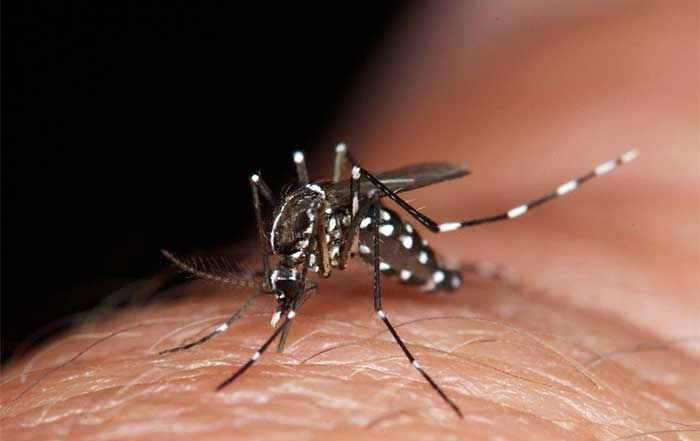Florida's summer rainy season is falling in full force. More rain leads to more mosquitoes that only require a bottle cap of standing water to breed and spread.
In Florida, mosquito-borne disease activity has already prompted mosquito-control and state health officials in five counties - Orange, Polk, Sarasota, Manatee, and Miami-Dade - to issue mosquito borne-illness health warnings. Local mosquito control officials are strongly urging residents and visitors to take basic precautions to avoid being bitten by mosquitoes and to help limit exposure.
With Florida recording a record 37.9 million tourists in the first three months of 2023, it is imperative that everyone follows simple tips to keep their loved ones and themselves safe.
"Like humans, mosquitoes live around the world but love to come to Florida," said Sandra Fisher-Grainger, President of the Florida Mosquito Control Association and Director of Hernando County Mosquito Control. "Our highly trained scientists and experts are always working to reduce the risk of mosquito-borne illness, and every resident and visitor can help to limit the risk."
Florida is fortunate to have the best mosquito-control professionals in the country, already deploying high-tech measures and 24/7 attention to combat the world's deadliest animal.
According to the American Mosquito Control Association, "mosquitoes kill hundreds of thousands of people each year around the world, and with global travel, pathogens such as the Zika virus are transported to the United States each year. As our population grows and people inhabit new locations, interactions between humans, animals, and mosquitoes increase the risk of exotic disease transmission."
Earlier this year, a mosquito species discovered in Florida in 2018 – the Culex lactator – was found to be spreading to other parts of the state, raising fears that it could spread disease after migrating from Central America.
Already this year, Miami-Dade County has had two cases of dengue infection transmitted by mosquitoes.
Late last month, Sarasota and Manatee counties issued a warning after local transmission of malaria was found.
Earlier this month, Orange County issued a mosquito advisory after half of the chickens in a coop designed to monitor mosquito-spread diseases tested positive for Eastern Equine Encephalitis, and several horses have shown to be infected with Eastern Equine Encephalitis in Polk County.
"While there are only a few cases that have been reported, we must respond as forcefully and quickly as possible," said Keira Lucas, Deputy Executive Director at Collier Mosquito Control District in southwest Florida. "Mosquitoes don't care if they are in a neighborhood, the beach or a business district so we all have to take precautions."
"Following simple steps, can help you protect your home and your family, especially during the summer months when we are spending more time outdoors," added Lucas.
Mosquitoes transmit a multitude of diseases that can cause great harm – including Zika, West Nile virus, chikungunya, and dengue fever.
Successful mosquito control requires cutting-edge scientific knowledge from many fields, including entomology, biology, chemistry, chemical engineering, physics, genetics, and geology.
Highly trained public servants control mosquitoes through several tools including airplanes, helicopters, traps, drones and more.
Every sector of the state's economy depends on the health of workers, residents, and visitors. The state's two largest business sectors, tourism, and agriculture could not grow without control of mosquitoes and their health risk.
Each Floridian can help control mosquitoes with just a few steps. The University of Florida and the Florida Department of Health have comprehensive guidance for residents and visitors.
The Florida Mosquito Control Association is celebrating its 100th anniversary of protecting the state's residents, businesses, and visitors.

